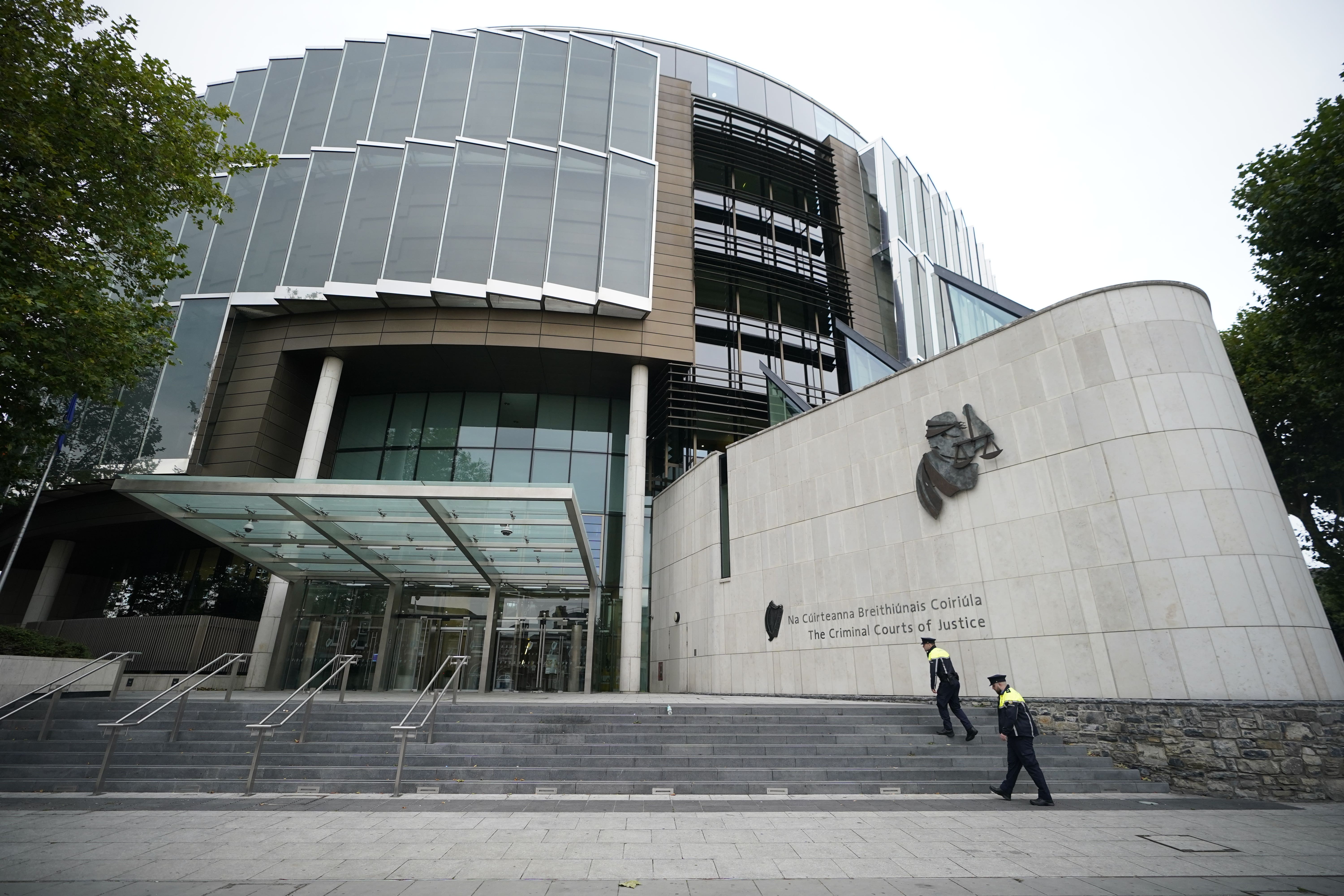Graham Dwyer: Irish man loses appeal against murder conviction as judge rules ‘no miscarriage of justice here’
Dwyer had won a case in Europe about the mobile data retention practices used in the case against him

Your support helps us to tell the story
From reproductive rights to climate change to Big Tech, The Independent is on the ground when the story is developing. Whether it's investigating the financials of Elon Musk's pro-Trump PAC or producing our latest documentary, 'The A Word', which shines a light on the American women fighting for reproductive rights, we know how important it is to parse out the facts from the messaging.
At such a critical moment in US history, we need reporters on the ground. Your donation allows us to keep sending journalists to speak to both sides of the story.
The Independent is trusted by Americans across the entire political spectrum. And unlike many other quality news outlets, we choose not to lock Americans out of our reporting and analysis with paywalls. We believe quality journalism should be available to everyone, paid for by those who can afford it.
Your support makes all the difference.The Irish Court of Appeal has dismissed architect Graham Dwyer’s appeal against his conviction for the murder of childcare worker Elaine O’Hara in 2012.
Dwyer was convicted on March 27 2015 after a lengthy high-profile trial.
He had launched an appeal on numerous grounds, including the admissibility of mobile phone data evidence.
Last April, Dwyer won a case in Europe about the mobile data retention practices used in the case against him.
Data held in the Cork-born architect’s work phone was used in the trial to demonstrate how it placed the device at specific places at particular times and dates.
The Court of Justice of the EU ruled that EU law precludes the general and indiscriminate retention of traffic and location data relating to electronic communication for the purpose of combating serious crime.
Delivering the decision, president of the Court of Appeal George Birmingham said the court was quite satisfied the admission of very limited call data could not be perceived of arising to a miscarriage of justice in this case.
“There is no miscarriage of justice here,” he said.
“We have not been persuaded that the trial was unfair or that the verdict was unsafe, and we dismiss the appeal,” he added.
Mr Justice Birmingham referred to the use in trial of the contents of 2,620 text messages and data retained by mobile phone companies for billing purposes in relation to five phones.
There is no miscarriage of justice here
The phones included what was referred to as Dwyer’s work phone, a phone attributed to Ms O’Hara which was left in her apartment, an additional “green phone” which the prosecution sought to attribute to Dwyer, as well as a “master phone” and “slave phone”, which the prosecution said could be attributed to Dwyer and Ms O’Hara respectively.
The president said the defence’s position was that the significance of data linking the phones was a central and integral part of the prosecution case.
He said the Director of Public Prosecutions did not dispute that it played a part but said the part it played was relatively minor.
He said the appellant’s response was that to push the significance of that evidence to the margins was an attempt to “unscramble the omelette that was the prosecution case”.
The evidence was also referred to as the “icing on the cake”.
It must be concluded that the icing significantly enhanced the cake
Mr Justice Birmingham said: “It must be concluded that the icing significantly enhanced the cake.”
On the request from investigators for the phone data, he said Garda actions were in full compliance of provisions of an Act of the Oireachtas and “enjoyed a presumption of constitutionality”.
He said while there was evidence from the parallel movements of phones at issue in the case, there was evidence of the same effect which was independent and “arguably more compelling”.
He outlined alternative routes of the identification of the suspect through “traditional detective work” and other evidence.
Outlining the background and personal circumstances of Ms O’Hara, Mr Justice Birmingham noted she had experienced certain mental health difficulties since her teenage years.
He also later referred to the “very unusual sexual relationship” discussed in the case, which included acts of stabbing perpetrated on Ms O’Hara.
Dwyer had also made appeals against what the defence believed to be prejudicial videos.
Nine video clips were played in the trial showing Dwyer engaged in sexual intercourse with aspects of BDSM, three of which included Ms O’Hara.
The defence argued it was “overly powerful and likely to cause a reaction among jurors”.
A picture is worth a thousand words
There was also accompanying commentary from an investigator in the trial.
Mr Justice Birmingham said the judge believed that the probative effect of the evidence outweighed its prejudicial value.
“A picture is worth a thousand words,” he said.
He said the videos represented the best evidence available.
Mr Justice Birmingham said the user of one of the phones had arranged to meet Ms O’Hara on August 22 2012 with the purpose of taking her up the mountains to be “stabbed and or punished”.
She was last seen alive on that date.
In the weeks before her disappearance, she had been admitted to hospital.
It was the prosecution’s case that with the ending of Ms O’Hara’s hospital admission, Dwyer began to put in a place a plan to use her for the purpose of obtaining sexual gratification by stabbing a woman to death.


